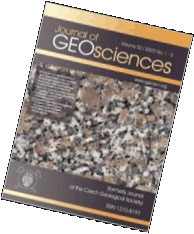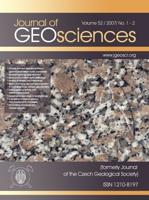 Export to Mendeley
Export to MendeleyMore articles on Granitic magmatism in collisional orogens
Original paper
Compositional variations in tourmalines from peraluminous rocks of the Dipilto Granitic Batholith, Eastern Chortis Terrane, Nicaragua: tracers of magmatic to hydrothermal evolution
Journal of Geosciences, volume 60 (2015), issue 2, 91 - 112
DOI: http://doi.org/10.3190/jgeosci.189
The granitoids of the Dipilto Batholith in northern Nicaragua range in composition from amphibole-biotite tonalite to cordierite-biotite and biotite granite. The petrographic and geochemical features indicate hybrid origin for the metaluminous granodiorite and tonalite (El Paraiso Suite). Dominant peraluminous granites (leucogranite dykes, Yumpali and La Piedra suites) represent a typical product of fractional crystallization of crust-derived melts.
Tourmaline occurs as rare mineral in peraluminous granites of the Yumpali Suite (randomly distributed grains and quartz-tourmaline nodules), but is very common in the younger leucogranite, pegmatite dykes and hydrothermal veins. Chemical variations (mainly XFe and F) in tourmaline as well as in biotite are consistent with magmatic differentiation processes in granites and pegmatites. The presence of quartz-tourmaline hydrothermal veins indicates involvement of B-rich post-magmatic hydrothermal fluids at the final stage of the Dipilto Batholith evolution. Tourmaline chemistry evolved from Mg-rich schorl in peraluminous granites, to F-rich schorl-foitite in the hydrothermal veins. This evolutionary trend is typical of F-poor granite-pegmatite systems.
Webdesign inspired by aTeo. Hosted at the server of the Institute of Petrology and Structural Geology, Charles University, Prague.
ISSN: 1803-1943 (online), 1802-6222 (print)
email: jgeosci(at)jgeosci.org


IF (WoS, 2024): 1.3
5 YEAR IF (WoS, 2024): 1.4
Policy: Open Access
ISSN: 1802-6222
E-ISSN: 1803-1943